
Healthcare is one of the most complex, fastest-growing, and fulfilling industries today. If you’re on this page, you’re probably already working in healthcare and are looking to advance your administrative or executive career. A health care MBA program can help you do that.
Best Health Degrees has researched current Health Care Management MBA programs and condensed the information we found to help you make your decision. All the programs in this ranking are accredited.
This ranking will provide you a snapshot of a program’s curriculum, admission standards, estimated tuition costs (not including fees), and how it rates in national rankings or special recognitions. Our listing links you with the school’s website for the program which may appeal to you.
COVID-19 UPDATE: Due to the COVID-19 pandemic, some schools have changed the way courses are offered. Information on changes will be found on school websites. The GMAT and GRE exams have also changed the way the tests are presented. Due to COVID-19, these exams may be taken in person or online, depending on your preference.
Our Method: Ranking the 25 Best Health Care Management MBA Degrees
To rank the 25 Best Health Care Management MBA Degrees, Best Degrees editors researched accredited, trusted programs of all kinds. From our initial pool, we ranked programs according to price, accreditation, reputation, and salary potential, using data from IPEDS and Niche, U.S. News and World Report, and other higher education rating publications.
1. University of California, Irvine

UCI provides an MBA for Executives featuring a Healthcare Leadership Track through its Paul Merage School of Business.
This curriculum is designed to train you in the digital environment impacting today’s healthcare management. The MBA takes 21 months to complete and is hybrid in design, requiring every 3-weekend, immersive attendance. Among the Healthcare Leadership Track courses you’ll take include Business of Medicine, Healthcare Entrepreneurship, Competing with Digital in Healthcare: Analytics, Platforms, Business Models, Digital Health, and more. You’ll also participate in a five-day Federal Policy in Health Care Residential in Washington D.C.
You’ll need a bachelor’s degree with at least a 3.0 GPA, eight years of work experience (5 of which are in management) to be considered for admission. GRE/GMAT scores are not required for admission.
Fast Facts: UCI ranks #7 Public University by U.S. News and World Report
Estimated Tuition Cost: $136,000 (tuition total)
Learn more about this healthcare management MBA!
2. University of Delaware

Among the MBA healthcare management programs you should consider is the one offered through UD’s Lerner Business and Economics MBA Healthcare Management degree.
This is an online format program, and while not specified, it’s assumed to be approximately two years in length. Among the healthcare management topics you’ll cover are 15 credit hours in Patient Experience & Engagement, Leadership & Innovation in Population Health, Population Health Informatics, Policy & Finance for Healthcare Delivery, etc.
Among the admission requirements are a bachelor’s degree, academic transcripts, personal statement, GMAT/GRE scores, letters of recommendation, as well as a resume. The typical MBA student has at least 2 or more years of work experience, volunteer work, internships, etc.
Fast Fact: Ranked #47 in Best Online MBA Programs by U.S. News and World Report
Estimated Tuition Cost: $950/credit hour for online students
Learn more about this healthcare management MBA!
3. Baruch College
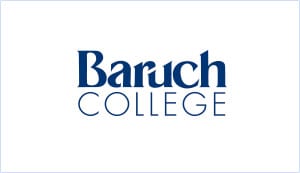
Part of the City University of New York (CUNY), Baruch College has an Executive MBA in Healthcare Administration, requiring 49 credit hours.
You’ll take core MBA courses in topics such as corporate finance, organizational strategy, accounting, managerial statistics, and more. Among your healthcare-specific studies are Global Perspectives in Healthcare Assessment, Healthcare Informatics and Quality, Legal Aspects of Healthcare Administration, etc. This program also offers immersive experiences in International Studies, Healthcare Ventures Capstone Project, Emerging Issues in the Healthcare Industry.
You need a minimum of seven or more years of business experience on the executive level for admission. Additionally, traditional admission requirements include GMAT/GRE scores, transcripts, resume/CV, letters of recommendation, etc.
Fast Fact: Niche recognizes Baruch College in several categories: Top Public Universities in America, Best Value Colleges in America, as well as Best Colleges in America
Estimated Tuition Cost: $72,500 (inclusive program total cost)
Learn more about this healthcare management MBA!
4. Texas Tech University

The Rawls College of Business at TTU has a two-year, 42 credit hour MBA for Professionals with a Health Organization Management Concentration.
With this hybrid program, you’ll acquaint yourself with current trends in healthcare and learn new skills to efficiently manage a healthcare organization. The curriculum requires 24 hours of core MBA coursework in finance, leadership, ethics, information technology, organizational behavior, and more. Although not specified, elective coursework completes the remaining 18 hours.
A bachelor’s degree is required for admission, along with at least two years of full-time work experience. This program does not require the GRE/GMAT test scores. Beginning each August, this MBA two on-campus immersion experiences in September and February.
Fast Fact: Niche rates TTU one of its Best Colleges for Business in America
Estimated Tuition Cost: $54,500 (inclusive program cost, minus travel and lodging
Learn more about this healthcare management MBA!
5. University of Alabama Birmingham

If you’re looking for a program to help enhance your decision-making skills and concentrate on the new role of healthcare administrators, you’ll want to explore the MBA at the University of Alabama’s Collat School of Business.
This is a 36 credit hour fast-track degree program you can take online or on-campus. Core MBA classes are in Accounting and Finance for Managers, Quantitative Analysis for Business Managers, Information Technology and Business Strategy, Operations and Supply Chain Management, Strategic Management, etc. You’ll take three electives in health services for a total of six hours.
Due to the Covid 19 pandemic, the program has waived the GRE/GMAT requirement until Spring 2021. Besides the application, you’ll need a baccalaureate degree, submit academic transcripts, personal statement of purpose, current work resume, three letters of reference, and a prerequisite of a pre-calculus course.
Fast Fact: The Princeton Review rates the Collat School of Business as one of the nation’s best in its 2020 “Best Business Schools”
Estimated Tuition Cost: $534/credit hour for online students
Learn more about this healthcare management MBA!
6. Florida International University

If you’re already working as a healthcare professional, you’ll want to look at the Healthcare MBA from this Florida university.
You can earn this degree in 18 months and study combined business and healthcare courses. Among your courses will be Organizational Behavior, Financial Reporting and Analysis, Marketing Management, Managerial Decision Making in Health Economics, Healthcare Fraud and Abuse Law and Regulation, Strategic Management, as well as Lean Six Sigma. There are three residencies required that can be completed on the university’s Miami campus or online.
You’ll need at least two years of professional experience, have an undergraduate degree, submit transcripts, etc. for admission. As most of the country, FIU Business is dealing with Covid 19 and its impact on admissions, so you’ll want to pay attention to the changes.
Fast Fact: U.S. News and World Report ranks FIU in the top 100 of its Top Public Schools
Estimated Tuition Cost: $52,000 (Florida residents), $54,000 (non-residents)
Learn more about this healthcare management MBA!
7. Florida Institute of Technology
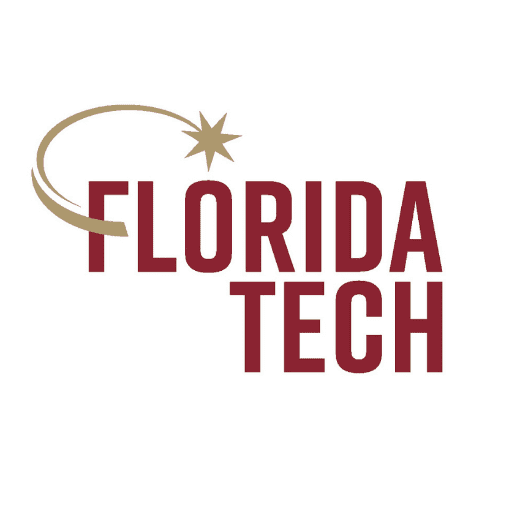
You can earn a Healthcare Management MBA at the Florida Institute of Technology. This is an online and/or blended program.
There are prerequisite requirements for students who have an undergraduate degree in a subject other than business. Core courses involve studies in accounting, economics, financial management, marketing, and organizational behavior. You’ll also take specialization courses in Healthcare Policy, Legal Aspects of Healthcare, Information Management in Healthcare, and Healthcare Planning and Marketing. A capstone project in Strategic Management completes the program. The program requires 36 credit hours.
The minimum admission requirements include a bachelor’s degree, a minimum 3.0 GPA, and more. You’ll want to check with the Admissions Office for other specific requirements.
Fast Fact: Wall Street Journal/Times Higher Education ranked FTU one of the Top 50 Southern U.S. University in 2019
Estimated Tuition Cost: $600/per credit hour
Learn more about this healthcare management MBA!
8. Baylor University
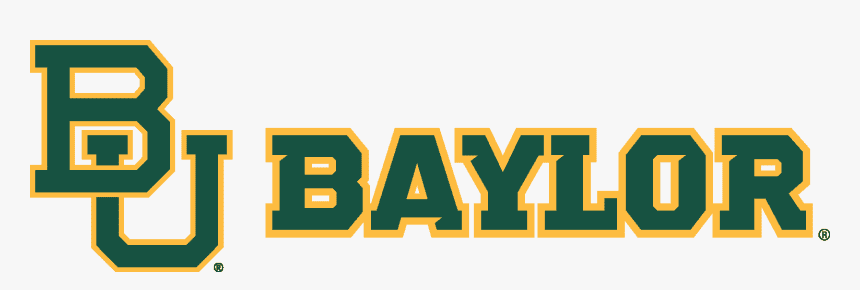
This renowned university offers a Healthcare Administration specialization in its MBA program and is part of its Robbins Institute for Health Policy and Leadership.
The 58 credit hour curriculum includes core business studies in Organizational Behavior, Strategic Management, Management Communication, and more. Healthcare specific studies involves Healthcare Administration, Executive Leadership in Healthcare Administration, Health Economics, Healthcare Law and Ethics, etc., as well as a Healthcare Administration Residency.
Unique in its design, the Healthcare Administration Residency is a nine-month, paid executive residency in a healthcare organization. During the residency, you’ll submit Monthly Activity Reports, Competitive Paper, and a conduct a Major Project.
Fast Fact: 100% completion rate
Estimated Tuition Cost: $22,272 per semester
Learn more about this healthcare management MBA!
9. Mercer University

With campuses in three Georgia cities, Mercer University has a Health Care Master of Business Administration. This is designed as a one-year weekend cohort program on the Macon campus.
The 36 credit hours required include studies in business courses such as Accounting and Finance, Organizational Behavior, Managerial Economics, Corporate Financial Management, etc. Among the healthcare-specific courses are studies in healthcare economics and finance, ethical issues in healthcare, and a healthcare field residency. The residency is a university-funded one-week residency, usually conducted in Washington D.C.
The school requests you contact an admissions advisor for personalized counseling.
Fast Fact: Mercer is considered a Best Value School by U.S. News and World Report
Estimated Tuition Cost: $795/per credit hour
Learn more about this healthcare management MBA!
10. Drexel University

Drexel’s LeBow College of Business has designed a MBA for Healthcare Providers which offers several minor options along with the Health Administration. Other options include Global Health, Health Economics, Healthcare Informatics, Urban Health, and Quality, Safety, and Risk Management.
The Health Administration minor requires 16 credit hours with studies in Politics and Policy of Healthcare Resources, National Health Expenditures, The Business of Healthcare, Group Dynamics & Leadership in Health Care Management, Resources, Recruitment and Retention in Healthcare, and others. These courses are in addition to core MBA classes in a variety of concentrations from Business Analytics to Supply Chain Management.
Transcripts, letters of recommendation, GRE/GMAT scores, professional resume, and personal essay are part of the admission requirements. Of course, you need a baccalaureate degree as well.
Fast Fact: Drexel University was founded in 1891 in Philadelphia, PA
Estimated Tuition Cost: $1,106-$1,306/per credit hour
Learn more about this healthcare management MBA!
11. University of Louisiana Lafayette

You can study the Moody College of Business’ MBA in Health Care Administration either on-campus or 100% online in eight-week accelerated courses.
The program requires 15 credit hours in core business courses, 15 credit hours in Health Care Administration, and a 6 credit hour internship. Foundational and core business topics include accounting, economics, marketing, quantitative methods, and more. Among degree-specific courses, you’ll study Health Care Economics and Finance, Legal and Ethical Issues in Health Care, and Special Topics. You’ll also complete two internships in an approved healthcare facility under a healthcare practitioner.
You can apply for this program if you have (or soon will have) a baccalaureate degree, a 2.75 GPA, current GMAT scores, a resume, and a statement of purpose. Of course, an application is also needed.
Fast Fact: ULL is considered one of the Best Colleges for Business in America by Niche
Estimated Tuition Cost: $1630/per credit hour; $12,800 (Online-includes books and other learning materials)
Learn more about this healthcare management MBA!
12. East Carolina University

ECU, in Greenville, North Carolina, has an MBA degree program and offers a Healthcare Management certificate. The program is offered online as well as on-campus.
If you don’t have an undergraduate degree in business, you can take foundational courses in financial, marketing, and comparative management as well as government regulations and quantitative methods. Core business courses include Organizational Behavior, Strategic Management, Marketing Strategy, Accounting for Decision Making, as well as Management Science. The certificate for healthcare administration studies include Health Care Systems and Problems, Management of Health Care Operations, Financial Management of Health Care Organizations, and Health Care Strategic Planning and Management.
Application is straightforward requiring an application and fee, current resume, GMAT/GRE scores, and academic transcripts.
Fast Fact: U.S. News and World Report ranks ECU #217 in National Universities
Estimated Tuition Cost: $1,123-$3,056/per class (Online and depending on residency); $2,259-$5,546/per class (On-campus)
Learn more about this healthcare management MBA!
13. Loyola – University Chicago

If you have at least seven years of professional experience, want to expand your professional network, and can attend classes on Saturday, twice a month, you’ll want to review Loyola’s Quinlin School of Business MBA Healthcare Management (MBA-HCM).
You’ll take classes in Business Fundamentals (economics, statistics, quantitative methods, etc.), Healthcare Fundamentals (marketing, operations management, Human Resources, business analytics, and more). Courses in Advanced Healthcare Leadership will cover special topics, communication, ethics, and leadership. Advanced Healthcare Management studies will involve finance, accounting, healthcare law, risk management, etc.
This program has an international immersion requirement, where you’ll travel abroad for 10-12 days to study global healthcare issues. The website doesn’t indicate how the Covid pandemic may affect this immersion.
Loyola requests a letter of recommendation, a personal statement of purpose, a professional resume, and an interview for admission purposes. The GRE/GMAT test scores are not required.
Fast Fact: Forbes named Loyola University of Chicago one of its Top Colleges 2019
Estimated Tuition Cost: $86,590 (total program cost, including global immersion)
Learn more about this healthcare management MBA!
14. Florida Atlantic University

FAU describes this as a “flexible MBA” with an MBA Health Administration Specialization and Certificate in Health Administration.
You’ll take 31-43 credit hours in core MBA business courses in Advanced Managerial Economics, Graduate Business Communication, Operations Management, Data Analysis for Managers, Advanced Marketing Management, and others. (Some courses may be waived if you have equivalent coursework in your undergraduate degree.) The healthcare administration specialization requires 12 credit hours with studies in healthcare systems, organizational behavior, health policy, healthcare finance, and more.
A 3.0 undergraduate GPA is required, along with GMAT/GRE scores, and transcripts.
Fast Fact: FAU ranks #136 in Top Public Schools by U.S. News and World Report
Estimated Tuition Cost: $19,602 – $25,040 (In-State, program total); $47,766 – $61,064 (Out-of-State, program total)
Learn more about this healthcare management MBA!
15. Quinnipiac University

This private, Connecticut university offers a full-time MBA with a healthcare specialization.
Requiring 45 credit hours for completion, this MBA includes studies in finance, data analytics, marketing decisions, strategic management, organizational behavior and leadership, contemporary business issues, etc. You’ll choose 15 credit hours in healthcare electives. Some of the courses available include Law and Medicine, Health Care Business Transactions, Human Resource Management, Foundations of Health Care Management, and others.
While the website isn’t clear regarding admission requirements, you’re encouraged to an Information Session and to request more information. You can also take a virtual tour of the College of Business.
Fast Fact: The Princeton Review rated Quinnipiac School of Business as one of the publication’s Best Business Schools for 2019
Estimated Tuition Cost: $1,075/per credit hour
Learn more about this healthcare management MBA!
16. Texas A&M-Commerce

You can study this MBA with a healthcare minor either online or on the Texas A&M campus in Commerce.
Requiring 30 credit hours, this degree can be earned in two years or less and has no thesis requirement. Business courses study topics in organizational behavior, economics, marketing, statistics, business research, as well as quantitative analysis, and more. The healthcare minor focuses on courses in Economics in U.S. Healthcare and examines policies, services, economics, and quality. You’ll learn to utilize Six Sigma tools.
Among the admission documents required are Apply Texas Application, official academic transcripts, a letter of recommendation, and GMAT/GRE scores.
Fast Fact: U.S. News and World Report ranks this program #88 Best Online MBA Programs
Estimated Tuition Cost: $3,820/per 9 credit hours (Texas resident); $7,500/per 9 credit hours (non-resident)
Learn more about this healthcare management MBA!
17. Old Dominion University
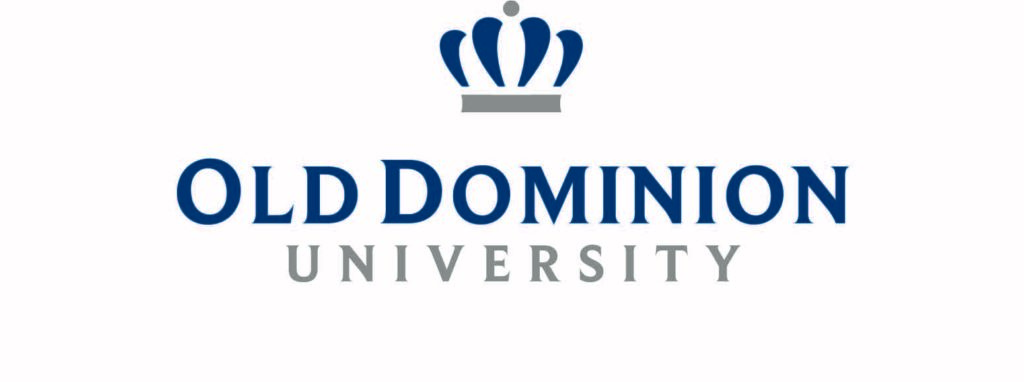
Here’s an MBA with a healthcare specialization, earned in 40 credit hours from this Norfolk, VA university. The specialty will prepare you to be a Health Care Executive.
This MBA allows you to design your program to meet your needs and allows you to choose between on-campus, online, or a blended course of study. You’ll have business classes in economics and finance, marketing and strategy, leadership, Human. Resources, etc. This program allows you to choose a health executive specialization certificate, which is typically 12 credit hours and will satisfy the elective requirements for the MBA.
You’ll be asked to provide GMAT/GRE test scores, academic transcripts, a 500-word goals statement, and a letter of recommendation. Admission applications are accepted in the summer, fall or spring semesters.
Fast Fact: Rated #65 in Best Part-Time MBA programs by U.S. News and World Report
Estimated Tuition Cost: $27,380-$60,820 (Depending on residency status; on-campus study); $28,285-$30,045 (Depending on residency status; online study)
Learn more about this healthcare management MBA!
18. SUNY-Oswego

This State University of New York in Oswego, NY, provides a Health Services Administration MBA you can earn 100% online.
In approximately two years, you’ll complete foundation, core requirements in areas like finance, management, marketing, and organization and management. Core healthcare courses will include Healthcare Systems in the U.S., Managerial Epidemiology, Economics of Healthcare, Introduction into Health Information Systems, etc. The program also requires a Healthcare Leadership capstone project. You can also choose to participate in a Professional Internship.
Three letters of recommendation, transcripts (and a minimum 2.6 GPA), resume, business essay, and a department consultation are needed for admission.
Fast Fact: Niche named SUNY Oswego one of its Best Value Colleges in America
Estimated Tuition Cost: $625/per credit hour
Learn more about this healthcare management MBA!
19. University of South Dakota
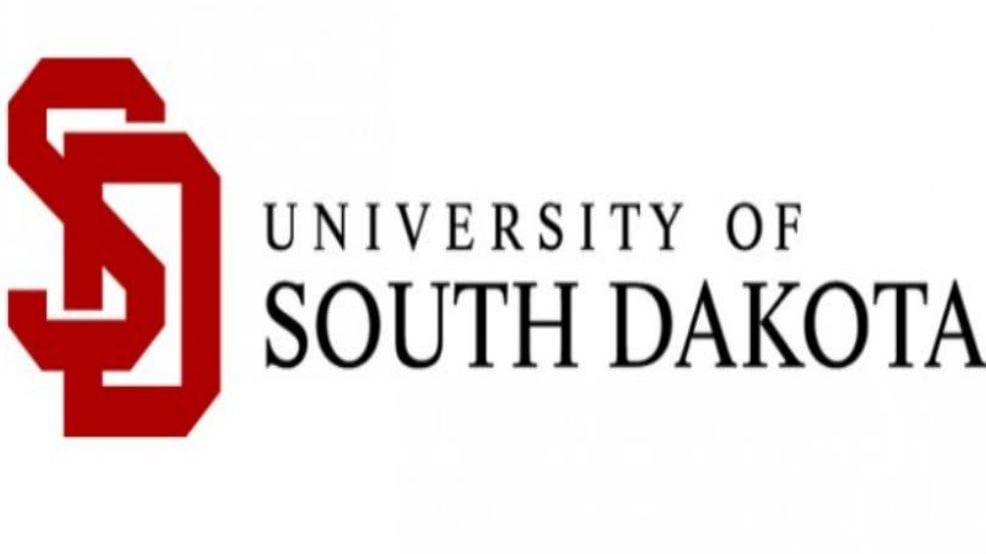
The Beacom School of Business at USD, has been training business administration students since 1927 and, today, offers an online MBA with a Health Services Administration Specialization.
Specialization courses include studies in marketing, accounting and finance, contemporary health administration issues, business environments, health services management, leadership development, etc. You’ll also complete a course in long-term care, health informatics, an internship, or a short-term study abroad. There is a thesis and thesis-option with this degree.
Successful admission will include documents showing a baccalaureate degree, a minimum of a 2.7 GPA, official academic transcripts, test scores, as well as letters of recommendation.
Fast Fact: Forbes ranked USD as one of its Top Colleges in 2019
Estimated Tuition Cost: $337/per credit (Resident); $648/per credit) Non-Resident
Learn more about this healthcare management MBA!
20. University of St. Francis

The University of St. Francis has an MBA with a Health Administration concentration you can complete online or on the Joliet, IL campus.
This 36-credit hour degree requires a core curriculum with classes in Managerial Finance, Strategic Business Management, and Managerial Accounting. You’ll also choose competency courses in areas such as marketing, information technology, social media, ethics, etc. In your Health Administration concentration, classes are offered in Health Care Finance, Health Care Law and Compliance, Health Care Ethics and Decision Making, Medical Sociology, and more.
You won’t need GMAT/GRE scores for admission, but will need documentation on successful completion (transcript) of a baccalaureate degree (with a 2.75 GPA), one recommendation letter, essay, resume, and employment verification.
Fast Fact: Ranked in the top 150 Best Online MBA Programs by U.S. News and World Report
Estimated Tuition Cost: $798/per credit
Learn more about this healthcare management MBA!
21. Hofstra University

This is an MBA with a health services concentration. Hofstra University offers an Online MBA and a Flexible MBA. The program can be completed online, on the Long Island, NY campus, or as a hybrid program.
Core competencies for this degree include studies in economics, ethics, legal, political, and regulatory influences on business. You’ll also study operations management, finance, information systems, and more. In addition to the standard MBA curriculum, you’ll take 9 credit hours in Health Policy and Analysis, Health Care Finance, Health Care Economics, Epidemiology for Health Care Managers, or Health Law and Ethics, etc.
You’ll need to provide academic transcripts, GMAT/GRE scores, letters of recommendation, a resume, and an optional personal statement for admission consideration.
Fast Fact: The MBA at Hofstra’s Zarb School of Business ranks #16 by The Princeton Review
Estimated Tuition Cost: $1,487/per credit (online)
Learn more about this healthcare management MBA!
22. Clarion University

Located in Clarion, Pennsylvania, this university provides an MBA with a healthcare concentration online and requiring 33 credit hours.
Among the curriculum courses offered are Leadership and Organization, Managerial Finance, Legal & Ethical Environment of Business, Marketing Decision Making, and more. Your concentration will include studies in Health Care Finance, Health Care Management Systems, and Legal and Ethical Issues of Health Care.
Besides the application, you’ll need to submit official transcripts, have an undergraduate degree with a minimum 3.0 GPA, present resume, letters of recommendation, and GMAT/GRE scores.
Fast Fact: Clarion University was founded in 1867 and ranks in the top 40 of U.S. News and World Report’s Top Public Schools
Estimated Tuition Cost: $516/per credit (online)
Learn more about this healthcare management MBA!
23. Wright State University

Through its Raj Soin College of Business, this Ohio school has an MBA with a Health Care Management concentration.
The concentration is a collaborative effort with the Boonshoft School of Medicine. Topics covered include evaluation techniques, health resource management, healthcare leadership, financial management in healthcare, etc. This MBA covers economics, finance, legal aspects of business, strategic cost management, marketing, competitive strategies, leadership, and ethics.
You need a baccalaureate degree (not necessarily in business) for admission, along with academic transcripts, and depending on your GPA, GMAT/GRE test scores may not be required.
Fast Fact: Forbes ranked Wright State University #638 nationally as one of its Top Colleges in 2019
Estimated Tuition Cost: $710/per credit (Ohio Resident); $1,175/per credit (Non Resident)
Learn more about this healthcare management MBA!
24. Delta State University
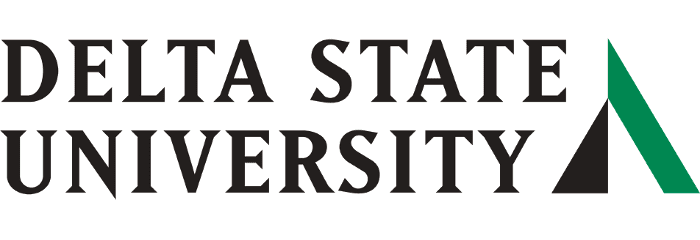
Delta State University in Cleveland, Mississippi, has an MBA with a healthcare emphasis you can complete in 30 credit hours in its College of Business and Aviation.
Required MBA classes include topics in accounting, financial management, Human Resources, marketing, and decision science. Among the courses in the emphasis are healthcare law and ethics, risk management, healthcare management and policies, and strategic project management.
You’ll need a baccalaureate degree, having a 2.75 GPA or four years professional experience, for admission to the program. Depending on your undergraduate coursework, you may need to complete business foundation courses prior to MBA admission.
Fast Fact: Ranked #34 Top Public Schools by U.S. News and World Report
Estimated Tuition Cost: $506/per credit (online); $442/per credit (campus)
Learn more about this healthcare management MBA!
25. DeSales University
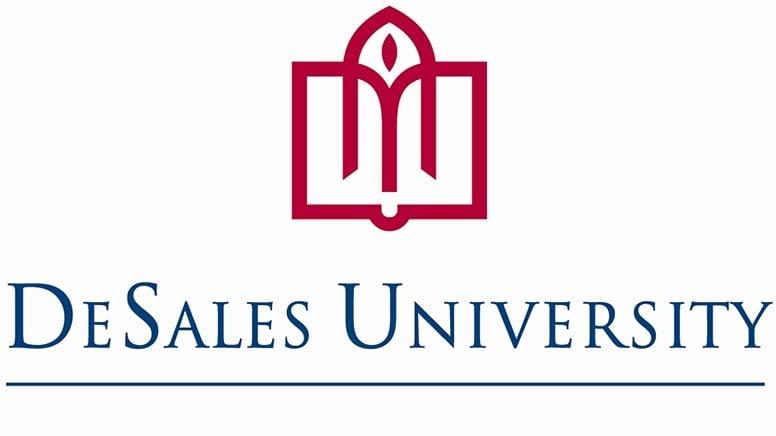
This MBA at DeSales University offers a Healthcare Management concentration online or on the DeSales Center Valley, Pennsylvania campus.
You’ll take seven core courses in Business and Society, Financial Management, Executive Skills Development, Business Computing, and more. The concentration requires successful completion of four courses from eight class offerings. Among the courses from which to choose are Foundations of Healthcare Systems, Management of Information and Communication Technologies in Healthcare Systems, Fiscal Issues in Health Systems Management, and others. A capstone project is also required.
You need a current resume, three recommendation letters, academic transcripts, a 3.0 GPA (or GMAT scores may be required), as well as a personal statement.
Fast Fact: Niche rates DeSales at 385/1,192 Best Colleges of Business in America
Estimated Tuition Cost: $855/per credit
Learn more about this healthcare management MBA!
Why Should I Get an MBA in Healthcare Administration?
Estimated by the Bureau of Labor Statistics, the healthcare industry will see a 32% much faster than average job growth in Healthcare Administration over a ten-year period.
The complexities of today’s healthcare requires familiarity with a solid combination of business and healthcare acumen. Healthcare, with a myriad of state and federal regulations, insurance and reimbursement concerns, larger clinical and support staff needs, equipment acquisition, marketing, as well as competition for physicians, nurses, and patients, today’s Healthcare Administrator benefits from an advanced degree.
What do You Study in an MBA in Healthcare Administration Program?
Standard curricula in health care MBA programs familiarize you with business concerns in finance, economics, accounting, supply chain management, Human Resources, decision making, and strategy development for organizations. You’ll typically study issues specific to healthcare in the field of ethics, risk management, quality control, healthcare informatics, and more.
Job and Career Outlook
While you can be a healthcare administrator with a bachelor’s degree, the benefits for an advanced degree will be seen in the positions for which you’ll qualify. Hospitals, health systems, outpatient facilities, and physician groups will sometimes prefer an MBA-trained executive with healthcare skills. MBA programs will improve your leadership and management expertise, analytical competencies, financial knowledge, well as interpersonal and interpersonal communication skills.
The healthcare field rewards advanced degrees with increased salaries, benefits, and better opportunities. As of May 2019, the BLS reports the median salary for healthcare administrators to be $100,980 per annum, depending on the type of facility and its location.
Careers for MBA prepared administrators with a healthcare concentration include employment as a Healthcare Administrator, Health Services Managers, Policy Analyst, and in the pharmaceutical field.
How Do I Choose a Health Care MBA Program?
You’ll want to look for a program that will provide you with a broad MBA curriculum in business areas such as finance, accounting, communications, supply chain management, statistics, project, and organizational development. Included in health care MBA programs with a healthcare specialization, you may want to look for programs that provide classes in healthcare law and ethics, health informatics, health economics, as well as healthcare marketing.
The length of the program may also be a consideration, with programs ranging from 30 to 50 credit hours. Depending on your previous education or employment history, you may be able to have some coursework waived to reduce the number of hours you’ll need to complete.
Cost is always a concern and you’ll want to find a program that fits your budget. Often, you’ll find schools with scholarships or fellowships for graduate students that will help defray costs, or, your employer may offer tuition assistance in the form of reimbursement. Additionally, if cost is an important factor, check out some affordable online MHA programs.
Admissions for most programs will require you to take the Graduate Management Admission Test (GMAT) or Graduate Record Exam (GRE). How you score on these tests may also allow you to waive certain coursework, depending on the program.
You’ll want to see how the program stacks up against other similar degrees by ranking sites available online such as U.S. News and World Report, Niche, Forbes, The Princeton Review, and others.
Accreditation is important as well, with most MBA degrees holding accreditation from The Association to Advance Collegiate Schools of Business (AACSB) or at least from a regional accrediting agency such as the Higher Learning Commission (HLC).
Should I Get an MHA or Healthcare MBA?
Both degrees are in demand in healthcare and overlap to a degree.
If you currently work in healthcare, a health care MBA may be the route for you. A health care MBA will provide you with business skills, when combined with your healthcare knowledge, will make you an attractive hire. You’ll study more business topics than healthcare in areas such as organizational development, Human Resources, marketing, law and ethics, financing and accounting, etc. The MBA with a healthcare specialty is a more flexible degree in that it can transfer to other fields.
A Master of Health Administration is healthcare intensive, as you would imagine. These programs focus on attributes solely in healthcare, with some business theory thrown in. With this degree, you’ll be able to specialize in a particular area of healthcare such as rehabilitation, senior services, acute care, etc.
In short, which degree you choose, depends on what your long-term career goals may be.
Related Rankings: